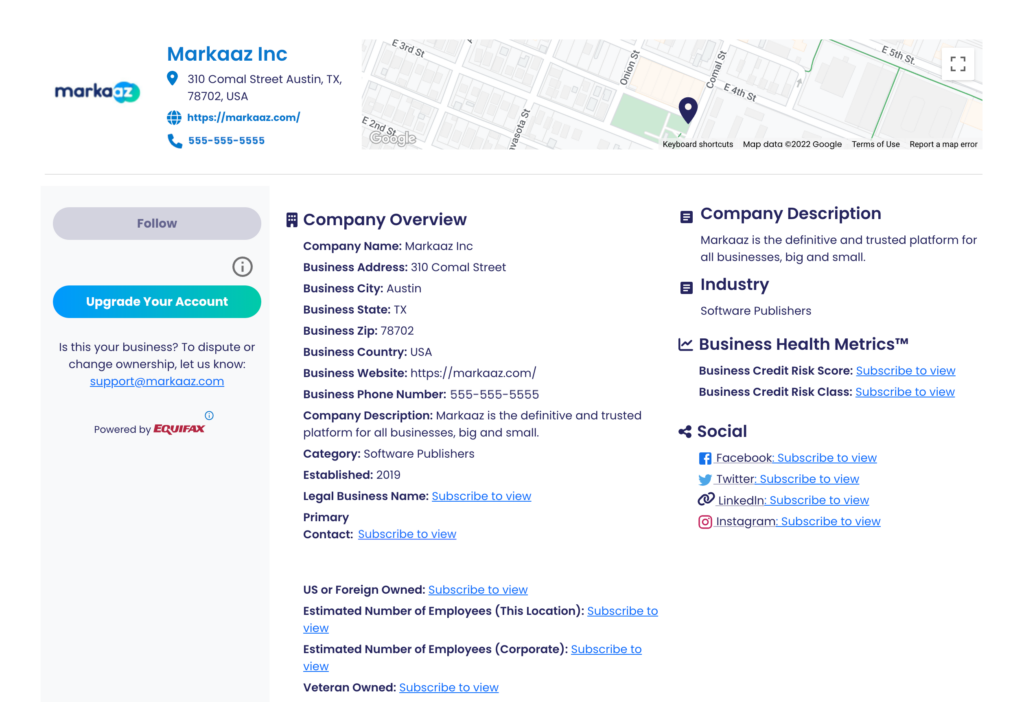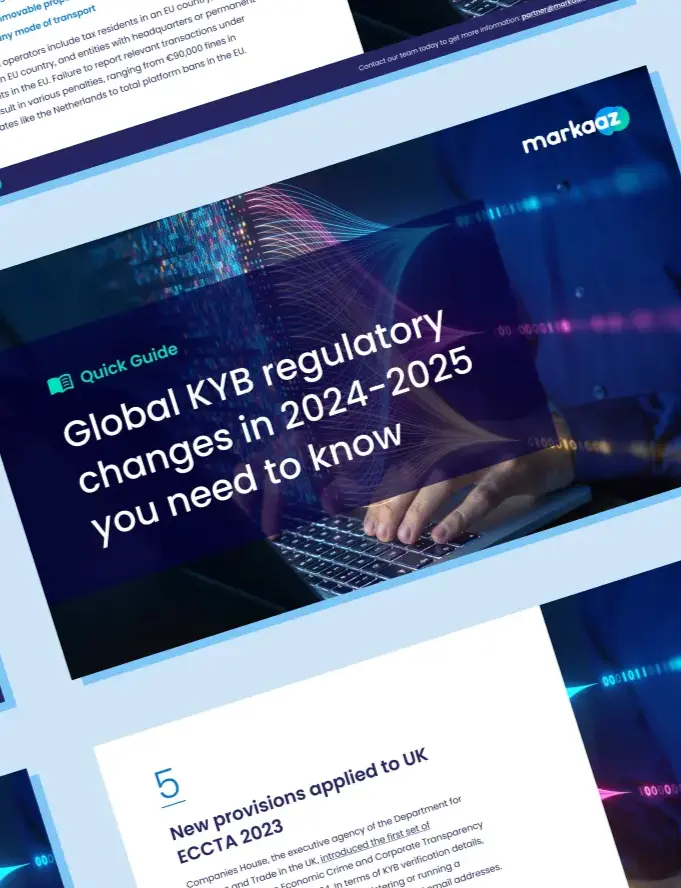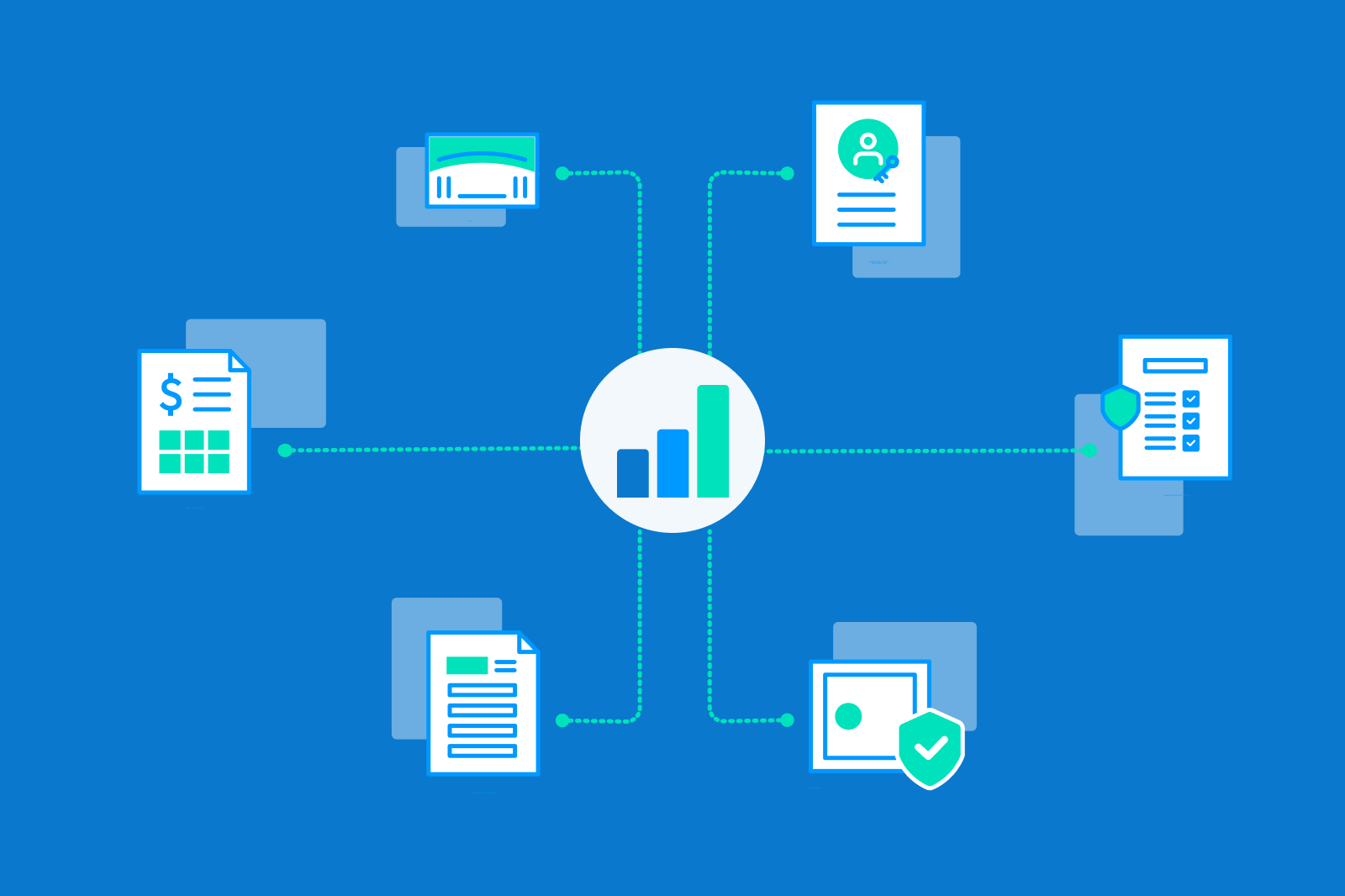Your business data can open doors to business growth and build better relationships with your customers. David Clarke, Chief Data Officer in Residence at Markaaz, gives you some ideas for better data management.
Using business data to make intelligent business decisions has become mainstream. Small businesses are jumping on the trend to ensure they have better access to enterprise services, including loans and credit cards.
Previously, finding the right business data you need was a manual process. Finding documents to prove your business is legitimate and gathering your financials to prove your credit history was a process of sorting through files and searching for the right data. Now, there is a rise in automated data services, and like the Markaaz Dashboard, centralized small business data services that allow you, as the company owner, to see the publicly available data for your company and save your essential digital business documents in one platform.
“Today’s pace of business demands immediate data access. If your small business needs a loan, you need to have your correct data and the right digital business documents to hand,” explains David Clarke, Chief Data Officer in Residence at Markaaz.
How can small businesses use their data?
Small business owners use public and private data to improve their relationships with others. By making their small business data accurate and improving the way they are viewed by the world, whether a credit score or a review on Yelp, they are helping themselves improve their standing with the public and other businesses. Would you rather work with a company with dozens of good reviews online or with a business without reviews?
Whether from a money perspective or a credit or review perspective, having the right, up-to-date and correct business data, a small business is more likely to get more deals, grow revenues, and get the best deals on insurance or credit cards, even loans.
“Small businesses can use their small business data to improve their relationship with larger companies and at the same time, to grow their business via their customers,” noted Clarke. “For example, I use TripAdvisor and see reviews and data on small businesses. That could include availability; it could involve cost. It could involve a review of the quality of service of a hotel or restaurant. I use that personally to make my decisions. Small businesses with accurate data and many review points are more likely to get my business.”
Large corporations use small business data in the same way when reviewing a loan application, rent application, or business credit card application. The enterprise will look your business up on a data site such as Markaaz, check you out on Google Reviews, and dive deep into your business history. If no data is available on your business, if it seems outdated, or if your customer reviews are poor, your application will likely be denied.
In the modern world, small business data is the key to your business’s success.
David Clarke’s top tips on using small business data to improve success

For small businesses to improve their data and lead to greater business success, they need to ensure their data has:
- Accuracy: Make sure what is held out there in the world, whether with us on Markaaz or just out there in the world of Google on a search, and make sure that data is accurate.
- Honesty: You have to put the correct data out there in the world because when large companies make decisions regarding smaller companies, they’re looking to check small business data mistakes, and if the data is wrong, the credit card is not going to be approved, the loan is not going to be extended. The customer isn’t going to come back. Honesty is a significant factor.
- Breadth of data: Everything about you, your website, your phone numbers, your credit score, your executives, your beneficial owners, your addresses – all of the data that might be relevant to any counterparty should be available.
- Immediacy: Make your data as timely as possible. If there is a change to the business, a new owner, a name, or a new address, get it out there in the world as soon as possible.
How do I correct and update my small business data?
Correcting and updating your business data in the public eye is very hard. It’s not as easy as going to one site and editing your data. It’s not easy to get one’s name, one’s address, one’s telephone number, one’s credit score, and one’s website changed everywhere.
“The internet is so broad these days, and there is data on small businesses everywhere in many different places. Getting all your small business data out there changed and accurate in all the possible locations is nigh on impossible, which is where Markaaz comes in; change it in one place, and it will get changed in many places. We will also be the site where many companies come to look for those changes. So given it’s not easy – find the right partner to change it for you and change it with, and that’s Markaaz,” explains Clarke.
Is there a small business database?
With Markaaz, small businesses can sign up for the Markaaz Dashboard, claim their business listing, and monitor and update business data. With our secure digital document Vault, your small business can have all of the correct data and information you need to apply for business services available at your fingertips. Let us help you run a successful business and make business ownership easier for you.

David Clarke
CHIEF DATA OFFICER IN RESIDENCE
David is an independent Advisor/Consultant specializing in data strategy and the business information industry. His clients have included John Wiley, TiVo, CreditSafe, and Mastercard. From 2015 to 2017, David was Chief Data Officer at Avention Inc., subsequently acquired by Dun & Bradstreet. Previously David spent 30 years at Dun & Bradstreet in various executive positions, including President, Sales & Marketing Solutions, US CIO, and Chief Data Officer. David was born in the United Kingdom but has lived in New Jersey for 20 years. He loves to travel and relaxes by skiing in the Alps and collecting Burgundy wine.




